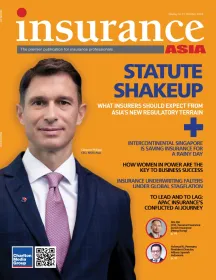
Sri Lanka's non-life insurers grapple with profitability under new premium directive: Fitch Ratings
NITF's failure to renew reinsurance cover for SRCCT and the non-renewal of retrocession cover pose risks to its capital position and earnings.
Fitch Ratings anticipates that the recent directive requiring Sri Lankan non-life insurers to remit 100% of motor insurance strike, riot, civil commotion, and terrorism (SRCCT) premiums to the state-owned National Insurance Trust Fund Board (NITF) will benefit NITF but may worsen the underwriting profitability of non-life insurers.
The impact on insurers' profitability and capital adequacy ratios depends on their ability to raise premium pricing and the level of commissions received from NITF.
The SRCCT segment, previously remitted at 12%, has been highly profitable, but recent protests led to significant claims in May 2022.
NITF's failure to renew reinsurance cover for SRCCT and the non-renewal of retrocession cover pose risks to its capital position and earnings.
ALSO READ: Sri Lanka’s life insurance segment surpasses general business in Q2’23
Fitch notes a downgrade in NITF's rating due to these factors. The combined ratio for SRCCT has been favorable, with ratios below 100% indicating underwriting profit. Under the new directive, non-life insurers' exposure to NITF will increase, especially for those heavily involved in motor insurance.
Fitch estimates a potential 5pp-10pp increase in the non-life sector's combined ratio, impacting the expected improvement for Fitch-rated non-life insurers in 2024.
However, Fitch expects Sri Lanka's economic conditions to improve in 2024, which could support vehicle demand, allowing motor insurers to raise premiums faster than inflation.
This may mitigate the impact of full remittance of SRCCT premiums to NITF, though higher prices could affect policy demand growth. The competition may limit insurers' capacity to pass on price increases, keeping combined ratios above 100%.
Investment and liquidity risks remain key concerns for Fitch-rated Sri Lankan insurers, potentially affecting ratings over time. Despite the revised outlooks to Stable in October 2023, poor profitability and capitalization metrics could still weigh on ratings.



















 Advertise
Advertise


